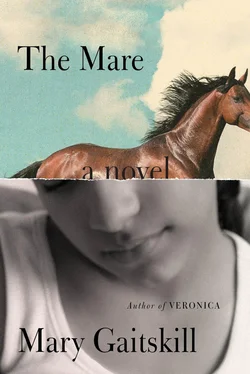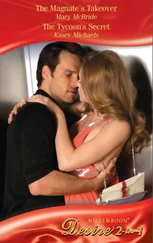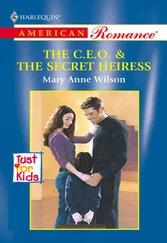I was trying to think what to say back, but before I could she said, “They fired her. I think she did something messed-up to somebody. Or somebody’s horse.” I almost asked how she knew, but then the retarded boy piped in out of nowhere, like a retarded person will do. “They say dogs are man’s best friend,” he said. “But horses are man’s best slave.” He looked right at me. “Are you Mexican?”
I said, “No, I’m Dominican.”
“What’s that?”
“Somebody from the Dominican Republic.”
“I never heard of that,” said Beth. “Where is that?”
Before I could answer, the weird boy said, “So why does a Mexican kid walk around like she owns the place?”
“It’s in the Caribbean next to Haiti.”
“So why does a Mexican—”
“Would you shut up?” said Beth.
He said, “It’s a joke, and she isn’t even Mexican!” But he shut up like he knew he was retarded, which made me feel sorry for him instead of mad.
—
The next time I saw Beverly, she was leading Blue Boy. The way Blue Boy followed her was different from how he followed Pat. With Pat, he walked normal; with Beverly he walked sharp —like a kid who knows he better not do nothin’ wrong. I thought, That’s how I want a horse to walk with me.
While I was watching, she stopped to talk to Gare Ann, who was cleaning the stall of a horse called Spirit. She was cleaning with Spirit standing in the stall with her. When I got closer I heard Beverly say, “You want to watch that one. He kicked Beth on the cross-ties last week.”
That girl usually ran her mouth, but not to Beverly; she kept her head down, said, “Yes, ma’am.”
“He kicked me once. Then we had a little conversation about it and he never did it again.”
“What did you say to him?” I asked.
Everything stopped. Beverly turned like in slow motion and stared the crap out of me. Her strong red face had thin lips and small deep eyes. It was a face that could make you do things just by looking. “I hurt him,” she said. “I hurt him more than he hurt me.”
Gare was looking at me too, probably because that was the first time she heard me say anything. She wasn’t gonna crack on me though. Not with this lady there. Even though she was turning around and taking Blue Boy away.
Sometimes the three of us would do things together; sometimes Velvet would go off alone with Paul and work in the garden with him, or just do an errand, like accompany him to the hardware store. But mostly it was her and me together. We would go to the mall, make dinner together, see movies, take long walks at night and talk about “private things.” I tried to get her to draw, but she was too scared of doing something wrong; reluctantly, she made cliché cats (ovals with tails and ears) and pigs, a few dull, dutiful flowers. They were the drawings of a five-year-old trying not to be messy. But I told her they were beautiful and although she probably knew that wasn’t really what I thought, she smiled. At night Paul and I would both sit on her bed and read to her and her eyes would go from alert to enchanted to blurred, sweet and private as she slowly stepped down into sleep.
Her presence made everything special: a cheese sandwich cut into four pieces, carrots sliced the way my mother used to serve them, her special towel with pink flowers on it, the soap I got for her with a plastic horse in it, her favorite radio station when we drove to the store. The glow on her face when I served her breakfast and said, “There you go, Princess.” The order of the house, which before I took for granted, now looked to me like something alive and full of goodness when I got up every morning and found the dishes she and I had washed in the drainer, the fruit in the bowl, the cereal and bacon ready to be cooked and eaten by somebody besides me and Paul.
It was like we were both living a dream we had known from television and advertisements and children’s books, a dream that neither of us had believed in yet had both longed for without knowing it. A dream in which love and happiness were the norm.
I know this was a dream for her, because of the way she responded to idealized movies and songs. I know because I found out she’d lied to create an ideal picture for me — or at least a nice one. I found out because she told me one night when we were walking in the neighborhood behind the campus, listening to the sounds of crickets and frogs, of kids playing in the street and families in their homes. It was just dark, and I couldn’t see her face, but I heard the embarrassment in her voice; I heard the trust. She reminded me of the time we’d first met, and she told me what her grades were.
“I don’t really get 3’s and 4’s,” she said. “I just told you that.”
“What do you get?”
“Ones and 2’s. Ones mostly.”
I remembered how she’d said “1, you got nothing.” We walked quietly for a moment and then, in a lower voice, she said, “I even got held behind in third grade. I should be going into middle school in the fall and I’m not.”
“Do you want to do better?” I asked. “Do you want to go to middle school next fall?”
“Yes.”
“Would you like me to help you? Work with you on the phone with your homework?”
She said yes again. I could hear that she was smiling in her voice.
I didn’t tell her about the conversation I’d had with her mother. I saw no reason to.
I started really liking Ginger. At first I was sorry that she wasn’t more like the big-legged lady with the orange flower, then I started thinking that really, she was better. Her hair looked like Barbie-doll hair. She wore pink polish on her toes; she had rubber sandals with jewels on them, and when I told her I liked them, she went and bought me a pair. When she washed the dishes, she would take off her gold wedding ring and her diamond and put them on the windowsill. She had a gold lipstick case with blue stripes on it and she sometimes put that on the windowsill too, next to this little plant in a purple pot and these little skinny plastic giraffes in beautiful colors that she said were to stir drinks with. She didn’t yell, ever. She was always nice, even when she got mad. But she didn’t act “all that.” The way she looked from behind, like when she was cooking food or something, made it seem like she didn’t even know where she was for sure. She blinked a lot. She always forgot things, like even her bank card in the ATM. It made her seem even more nice, I don’t know why.
One day she showed me her art. It was all up in the top of the house, in this small room with low ceilings, and windows, even windows in the ceiling. Her art was made out of colored shapes. She didn’t like to paint real things, just these shapes. Sometimes they weren’t even shapes, they just looked like things you’d do in preschool. I didn’t like them, but I acted like I did. And there was one I did like a little because the shapes were cool — there was this round red thing like the sun when it came up over the dark line, only this was like the sun down in a hole. She said it was a picture of her sister and I’m like, What?
She said, “That’s what my sister’s personality was like.”
I thought, She must’ve been crazy. But I didn’t say it.
“My sister was very passionate. Do you know that word?”
“No.”
“It means strong feelings, deep feelings. Like this.”
She touched the red. I nodded. She put her hand on my shoulder and said, “You’re passionate too, I think. You seem deep.”
—
That night I took her ring. It was from this glass box where she kept rings she wore before she got married. It wasn’t stealing because she showed them to me once and asked if I wanted one. I said no. But I went and took one, a tiny one with an orange flower that she wore on her little finger when she was a teenager; it reminded me of the orange plastic flower of the big legs lady. I slept with it on my pinkie finger that night.
Читать дальше












